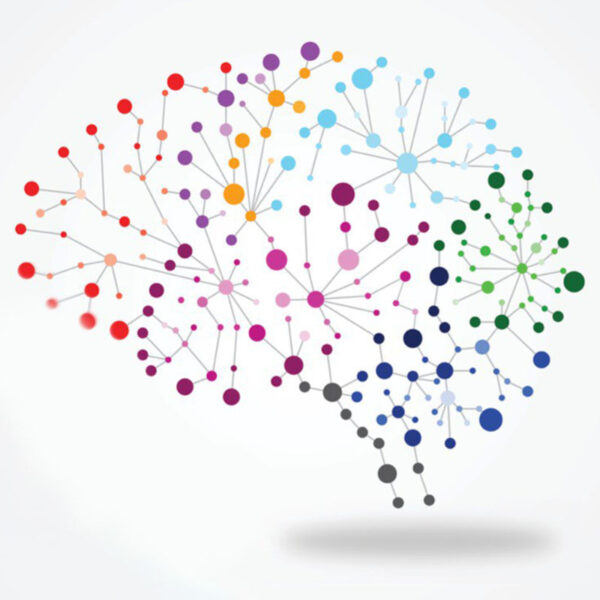
Personality Disorders
Paranoid Personality Disorder:
Paranoid Personality Disorder is defined by an all-pervasive disbelief and suspicion towards other people. This leads to an increased cautiousness, a denial to take responsibility of one’s own feelings and a constant apportion of responsibility to others.
People with paranoid disorder may interpret others’ acts as devious, resulting in difficulties in creating close relationships and in a tendency for resentment. They might suspect constantly that other people are causing them harm, taking advantage of them or deceive them, sense attacks on their character or esteem that others cannot realize and be aggressive for that, constantly question their partner’s loyalty.
Psychotherapy can help people with paranoid personality disorder question their mistrustful beliefs and develop more balanced patterns of thinking.
Schizoid Personality Disorder:
Schizoid Personality Disorder is defined by a detachment from social relationships and a restricted range of emotional expression.
People with schizoid disorder do not enjoy relationships, not even being part of a family. They don’t have close friends neither show interest in having sexual experiences with another person. They often prefer lonely activities, they present a cold or flat general feeling and look indifferent to praise or critique. They tend to be introspective and focused on their own thoughts or internal experiences.
Psychotherapy can help people with schizoid personality disorder explore and develop a larger understanding of their emotions and interpersonal needs.
Schizotypal Personality Disorder:
Schizotypal Personality Disorder is defined by social difficulties and eccentric behavior.
People with schizotypal disorder may have paranoid beliefs, inexpedient feelings, suspicion and excessive social anxiety, and that is why the usually don’t maintain close relationships. They may have weird opinions or magical thinking and unusual sensorial experiences , like feeling the presence of supernatural entities or having beliefs that do not match their cultural background. They feel uncomfortable in social situations and often present odd thinking and speech and also strange behavior or appearance.
Psychotherapy can help people with schizotypal disorder handle their social anxiety and develop healthier interpersonal skills and patterns of thinking.
Paranoid Personality Disorder is defined by an all-pervasive disbelief and suspicion towards other people. This leads to an increased cautiousness, a denial to take responsibility of one’s own feelings and a constant apportion of responsibility to others.
People with paranoid disorder may interpret others’ acts as devious, resulting in difficulties in creating close relationships and in a tendency for resentment. They might suspect constantly that other people are causing them harm, taking advantage of them or deceive them, sense attacks on their character or esteem that others cannot realize and be aggressive for that, constantly question their partner’s loyalty.
Psychotherapy can help people with paranoid personality disorder question their mistrustful beliefs and develop more balanced patterns of thinking.
Schizoid Personality Disorder:
Schizoid Personality Disorder is defined by a detachment from social relationships and a restricted range of emotional expression.
People with schizoid disorder do not enjoy relationships, not even being part of a family. They don’t have close friends neither show interest in having sexual experiences with another person. They often prefer lonely activities, they present a cold or flat general feeling and look indifferent to praise or critique. They tend to be introspective and focused on their own thoughts or internal experiences.
Psychotherapy can help people with schizoid personality disorder explore and develop a larger understanding of their emotions and interpersonal needs.
Schizotypal Personality Disorder:
Schizotypal Personality Disorder is defined by social difficulties and eccentric behavior.
People with schizotypal disorder may have paranoid beliefs, inexpedient feelings, suspicion and excessive social anxiety, and that is why the usually don’t maintain close relationships. They may have weird opinions or magical thinking and unusual sensorial experiences , like feeling the presence of supernatural entities or having beliefs that do not match their cultural background. They feel uncomfortable in social situations and often present odd thinking and speech and also strange behavior or appearance.
Psychotherapy can help people with schizotypal disorder handle their social anxiety and develop healthier interpersonal skills and patterns of thinking.
Anti-Social Personality Disorder (ASPD):
Anti-social personality disorder is characterized by a contempt of others’ rights and feelings, a lack of empathy and a general pattern of impulsive and reckless behaviors.
People with this specific personality disorder usually show deviousness and steady irresponsibility, while they can be involved in manipulative and often aggressive acts without remorse or guilt. They find it hard to comply with the law, so they usually have a history of law problems. They are irritable and aggressive and completely indifferent both for their safety and others’.
It's important to note that not all people with anti-social features meet the criteria for the ASPD diagnosis, since it demands an insisting behavioral pattern that usually starts in adolescence.
Borderline Personality Disorder (BPD):
Borderline Personality Disorder is defined by intense and unstable feelings, difficulties with self-image and identity, turbulent personal relationships and impulsive behaviors.
People with BPD often experience a deep fear of abandonment and develop intense, unstable relationships that alternate between idealization and disdain of others. They may have unsteady perception or image of self, inexpedient, intense anger and difficulty to control it and chronic feelings of insufficiency, while they can easily be involved in self-destructive behaviors or self-harm. They may also be extremely sensitive to perceivable rejection or judgement.
Psychotherapy can help people with BPD to manage their emotions, develop healthier reaction mechanisms and improve their relationships.
Narcissistic Personality Disorder (NPD):
Narcissistc Personality Disorder is defined by an excessive feeling of self-importance, a constant need for admiration and validation and lack of empathy for others.
People often have grand fantasies of success, brilliance, power or beauty and present an extreme preoccupation with their own achievements or their appearance. They demand admiration and consider they have special rights, while they believe they are special or unique and such should be the people they develop relationships with.
People with NPD don’t have empathy, they cannot recognize others’ feelings or needs and usually take advantage of them for personal interest.
Psychotherapy can help people develop a more realistic self-conception, recognize the consequences of their behavior, develop empathy and a healthier self-esteem, handle their feelings and expectations in a more suitable way. NPD’S therapy is probably long-term and constitutes a challenge, since people have an important difficulty with judgement and recognition of their disfunctions.
Histrionic Personality Disorder:
Histrionic Personality Disorder is characterized by a pattern of attention seeking and excessive emotional and dramatic behavior, as a response to the person’s need to be the center of attention.
People with this disorder have an intense desire to be liked and they might use an alluring or provocative behavior to earn others’ approval and admiration. They talk and behave in an extremely impressive and dramatic way, they might be easily influenced by other people and circumstances and tend to consider their relationships closer than they actually are.
Psychotherapy can help people with histrionic disorder develop more suitable ways of expression and create more meaningful connections and relationships.
Anti-social personality disorder is characterized by a contempt of others’ rights and feelings, a lack of empathy and a general pattern of impulsive and reckless behaviors.
People with this specific personality disorder usually show deviousness and steady irresponsibility, while they can be involved in manipulative and often aggressive acts without remorse or guilt. They find it hard to comply with the law, so they usually have a history of law problems. They are irritable and aggressive and completely indifferent both for their safety and others’.
It's important to note that not all people with anti-social features meet the criteria for the ASPD diagnosis, since it demands an insisting behavioral pattern that usually starts in adolescence.
Borderline Personality Disorder (BPD):
Borderline Personality Disorder is defined by intense and unstable feelings, difficulties with self-image and identity, turbulent personal relationships and impulsive behaviors.
People with BPD often experience a deep fear of abandonment and develop intense, unstable relationships that alternate between idealization and disdain of others. They may have unsteady perception or image of self, inexpedient, intense anger and difficulty to control it and chronic feelings of insufficiency, while they can easily be involved in self-destructive behaviors or self-harm. They may also be extremely sensitive to perceivable rejection or judgement.
Psychotherapy can help people with BPD to manage their emotions, develop healthier reaction mechanisms and improve their relationships.
Narcissistic Personality Disorder (NPD):
Narcissistc Personality Disorder is defined by an excessive feeling of self-importance, a constant need for admiration and validation and lack of empathy for others.
People often have grand fantasies of success, brilliance, power or beauty and present an extreme preoccupation with their own achievements or their appearance. They demand admiration and consider they have special rights, while they believe they are special or unique and such should be the people they develop relationships with.
People with NPD don’t have empathy, they cannot recognize others’ feelings or needs and usually take advantage of them for personal interest.
Psychotherapy can help people develop a more realistic self-conception, recognize the consequences of their behavior, develop empathy and a healthier self-esteem, handle their feelings and expectations in a more suitable way. NPD’S therapy is probably long-term and constitutes a challenge, since people have an important difficulty with judgement and recognition of their disfunctions.
Histrionic Personality Disorder:
Histrionic Personality Disorder is characterized by a pattern of attention seeking and excessive emotional and dramatic behavior, as a response to the person’s need to be the center of attention.
People with this disorder have an intense desire to be liked and they might use an alluring or provocative behavior to earn others’ approval and admiration. They talk and behave in an extremely impressive and dramatic way, they might be easily influenced by other people and circumstances and tend to consider their relationships closer than they actually are.
Psychotherapy can help people with histrionic disorder develop more suitable ways of expression and create more meaningful connections and relationships.
Dependent Personality Disorder
Dependent Personality Disorder is defined by an intense and excessive need of care by others, since the person feels that he/she cannot function without their help.
People with dependent disorder may find it hard to make decisions on their own and often seek the assurance and approval of other people. They might feel helpless or find it hard to start any project without others’ support, while they also might not be able to express their disagreement, afraid that they may lose others’ support or approval.
The need for others is totally maladaptive and does not comply with peoples’ age or life condition. Their relationships are specific and when a close, dependent relationship is terminated, they immediately try to replace it.
Psychotherapy might prove valuable in analyzing the fears of independence, enhancing the decision making ability and autonomy in people with dependent disorder.
Obsessive-Compulsive Personality Disorder (OCPD):
Obsessive-compulsive personality disorder is defined by an intense preoccupation with order, perfectionism and control.
People with this specific personality disorder might have rigid routines, extremely high standards and an intense need for rules and organization. They tend to be rigid, specifically in subjects of morality and values, they are extremely diligent and cautious and find it hard to assign duties to others. It might be hard for them to throw away things or money, given that money should be saved for future plans and causes. Perfectionism and psychological control are so intense, that the person cannot be flexible in any context.
While OCPD shares a few similarities with Obsessive-Compulsive Disorder (OCD), what defines it is that obsessions and compulsive behaviors in the personality disorder are related to a general desire for methodicality, control and perfection, rather than specific anxieties.
Psychotherapy can help people with OCPD to gradually challenge their rigid ways of thinking, to ameliorate their flexibility capability and reduce their tendencies for perfectionism and total control.
Avoidant Personality Disorder:
Avoidant Personality Disorder is defined by a pattern of intense social shyness, insufficiency and hyper-sensitivity to judgment or rejection.
People with this personality disorder usually avoid social situations, especially new ones, and are afraid of being judged or ridiculed. They have an intense desire for acceptance and closure with others, but may find it hard to begin or maintain relationships because of intense anxiety and self-doubt. They consider themselves socially stupid, unattractive and inferior to others.
Psychotherapy can help people with avoidant disorder to question their negative beliefs and develop healthier reaction strategies, enhance their self-esteem and develop social skills.
Dependent Personality Disorder is defined by an intense and excessive need of care by others, since the person feels that he/she cannot function without their help.
People with dependent disorder may find it hard to make decisions on their own and often seek the assurance and approval of other people. They might feel helpless or find it hard to start any project without others’ support, while they also might not be able to express their disagreement, afraid that they may lose others’ support or approval.
The need for others is totally maladaptive and does not comply with peoples’ age or life condition. Their relationships are specific and when a close, dependent relationship is terminated, they immediately try to replace it.
Psychotherapy might prove valuable in analyzing the fears of independence, enhancing the decision making ability and autonomy in people with dependent disorder.
Obsessive-Compulsive Personality Disorder (OCPD):
Obsessive-compulsive personality disorder is defined by an intense preoccupation with order, perfectionism and control.
People with this specific personality disorder might have rigid routines, extremely high standards and an intense need for rules and organization. They tend to be rigid, specifically in subjects of morality and values, they are extremely diligent and cautious and find it hard to assign duties to others. It might be hard for them to throw away things or money, given that money should be saved for future plans and causes. Perfectionism and psychological control are so intense, that the person cannot be flexible in any context.
While OCPD shares a few similarities with Obsessive-Compulsive Disorder (OCD), what defines it is that obsessions and compulsive behaviors in the personality disorder are related to a general desire for methodicality, control and perfection, rather than specific anxieties.
Psychotherapy can help people with OCPD to gradually challenge their rigid ways of thinking, to ameliorate their flexibility capability and reduce their tendencies for perfectionism and total control.
Avoidant Personality Disorder:
Avoidant Personality Disorder is defined by a pattern of intense social shyness, insufficiency and hyper-sensitivity to judgment or rejection.
People with this personality disorder usually avoid social situations, especially new ones, and are afraid of being judged or ridiculed. They have an intense desire for acceptance and closure with others, but may find it hard to begin or maintain relationships because of intense anxiety and self-doubt. They consider themselves socially stupid, unattractive and inferior to others.
Psychotherapy can help people with avoidant disorder to question their negative beliefs and develop healthier reaction strategies, enhance their self-esteem and develop social skills.
Make an Appointment
If you experience the above symptoms, do not hesitate to contact us. The NOYS Therapy Center team is here for you.










